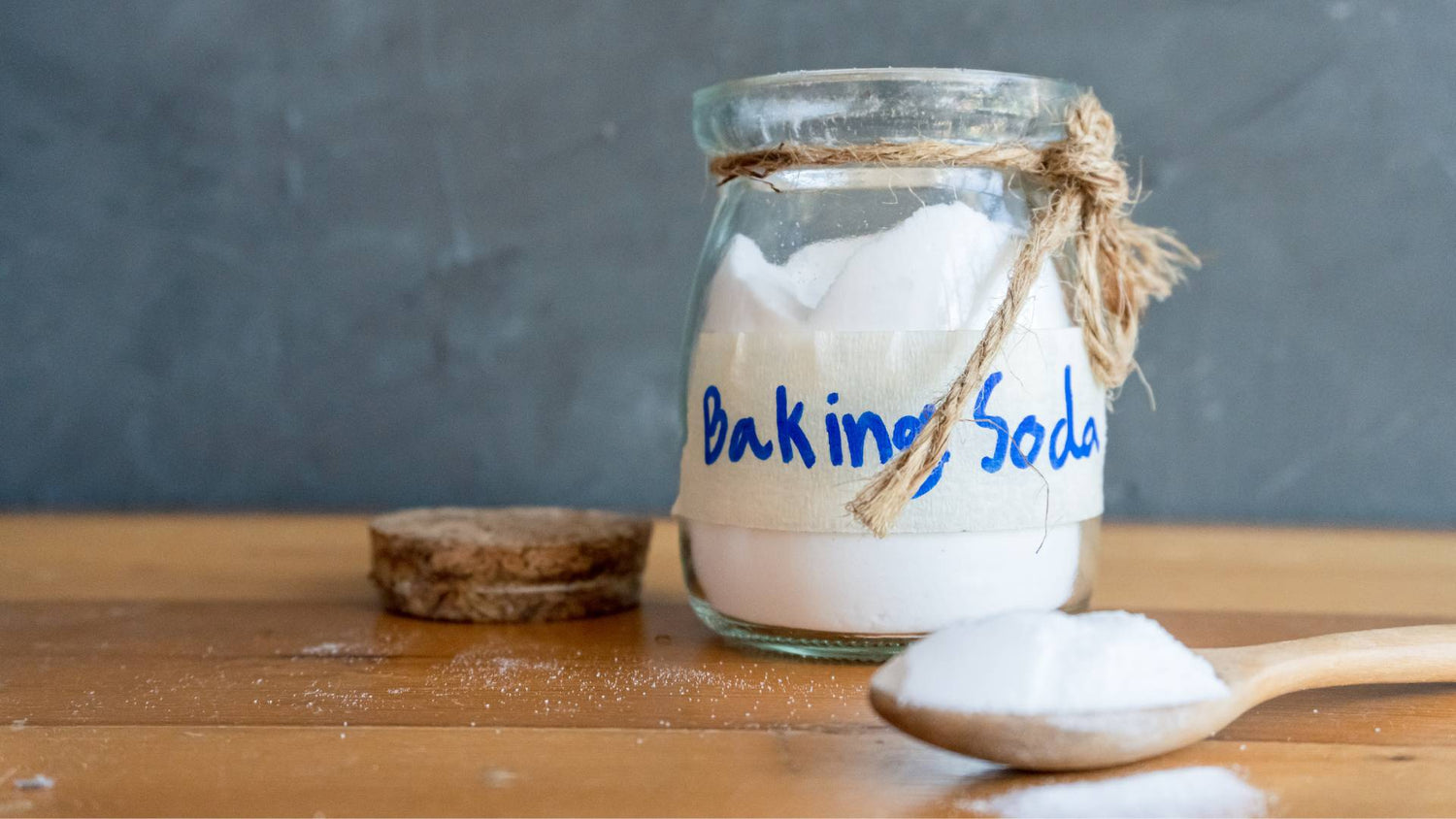Discover how baking soda can boost your sports performance – including information on optimal dosage and potential side effects!
Have you recently come across posts on social media about using baking soda for enhancing sports performance and wondered what it’s all about? It seems that sodium bicarbonate, better known as baking soda, has found a solid place in sports nutrition. Particularly in sports that require intense, short bursts of muscle exertion, baking soda appears to help. In this article, we’ll explain how it works, how it’s used in sports, which sports benefit the most from it, and what you need to be aware of.
What is Sodium Bicarbonate and How Does it Work in Sports?
During intense anaerobic exercise, such as sprinting or weightlifting, your muscles temporarily become acidic, causing that burning sensation you feel during training. While this acidification balances out fairly quickly, it can momentarily affect your athletic performance.
Baking soda works by neutralising the acids in the body and thus contributes to regulating the acid-base balance. It seemingly increases the buffering capacity of the blood, which means that our muscles acidify more slowly.
Studies have shown that taking baking soda before activities such as sprints, short-distance swimming, or weightlifting can have a performance-enhancing effect. This is especially relevant for exercises lasting between 30 seconds and 12 minutes. In endurance sports such as cycling or running, baking soda helps to delay fatigue. This performance-enhancing effect has been observed in both men and women, and in both trained athletes and recreational sportspeople [1].
Dosage and Use: How Much and When Should You Take Baking Soda for Sports?
According to current scientific knowledge, the optimal dose of sodium bicarbonate is 0.2 to 0.3 grams per kilogram of body weight. For a person weighing 70 kg, this corresponds to about 14 to 21 grams of baking soda. This amount should be taken 60 to 180 minutes before exercise.
Sodium bicarbonate can be dissolved in water or taken in powder form. It can also be used in gastro-resistant capsules or in smaller doses spread out over several days, known as the multiple-day protocol.
Side Effects and How to Avoid Them
Using baking soda can cause side effects such as bloating, stomach pain, diarrhoea, or vomiting, especially at high doses. To minimise these, athletes can take smaller doses or spread the intake throughout the day.
Another option is to take baking soda with a carbohydrate-rich meal. This method can improve tolerance and further enhance performance. For many athletes who are more sensitive, gastro-resistant capsules or other specialised products are a helpful alternative to avoid digestive discomfort.
Which Sports Are Best Suited for Baking Soda?
Baking soda is especially useful in sports that require short, intense bursts of effort, such as:
- Combat sports: In sports like boxing, judo, or karate, baking soda allows for a higher number of powerful movements within a short time frame.
- Sprints and interval training: It also improves performance by delaying muscle acidification.
- Strength training: For high-repetition sets and heavy weights, baking soda can help maintain muscle performance.
Is Baking Soda Considered a Banned Substance?
If you’re wondering whether baking soda is on the list of banned substances, the answer is: no. The World Anti-Doping Agency (WADA) does not classify it as a banned substance, although some experts debate this.
Combining Baking Soda with Other Supplements
Baking soda can be combined effectively with other supplements, especially:
- Beta-alanine: This supplement also increases intramuscular buffering capacity and positively affects endurance performance. Combined with baking soda, the performance-enhancing effect is further boosted.
- Creatine: Creatine improves energy availability in the muscles during short bursts of high-intensity effort. Together with baking soda, it can further enhance athletic performance.
Although there is no conclusive evidence yet, caffeine and baking soda are also often used together as part of a comprehensive strategy to improve sports performance.
Important: If you’re boosting your athletic performance with targeted supplements, you should also make sure your post-workout recovery keeps up. That means getting enough sleep, eating a balanced diet, and – most importantly – consuming enough high-quality protein. It’s the only way your body can repair muscle tissue and rebuild strength.
A plant-based protein like our WAM Protein can support you perfectly – with up to 23 g of protein per serving, extra leucine for muscle protein synthesis, and a balanced flavour without any artificial sweeteners.
Conclusion: Baking Soda in Sports
Sodium bicarbonate, also known as baking soda, has established itself as an effective supplement for improving athletic performance. It helps neutralise the acids that form during intense physical exertion, delaying muscle acidification. The right dosage and timing of intake are crucial to achieving the full performance-enhancing effect.
In sports like sprinting, combat sports, or weightlifting, baking soda can significantly improve performance. To avoid unpleasant side effects, it’s important to consider gastro-resistant capsules or smaller, spread-out doses throughout the day. Combined with supplements like beta-alanine or creatine, its use can be optimised further.
We hope you found this insight useful. If you have any questions or want to learn more about another supplement, feel free to send us a message!
Sources
[1] Grgic J, Pedisic Z, Saunders B, Artioli GG, Schoenfeld BJ, McKenna MJ, Bishop DJ, Kreider RB, Stout JR, Kalman DS, Arent SM, VanDusseldorp TA, Lopez HL, Ziegenfuss TN, Burke LM, Antonio J, Campbell BI. International Society of Sports Nutrition position stand: sodium bicarbonate and exercise performance. J Int Soc Sports Nutr. 2021 Sep 9;18(1):61.




